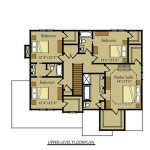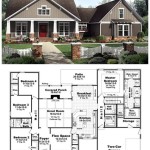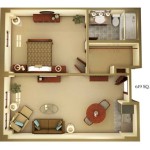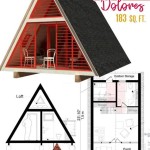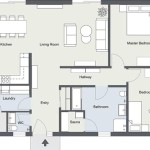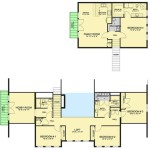Design a Home Floor Plan
Designing a home floor plan is an exciting and crucial step in the homebuilding process. It sets the foundation for the functionality, flow, and aesthetics of your living space. Whether you're starting from scratch or renovating an existing home, careful planning and attention to detail are essential to create a home that truly meets your needs.
1. Determine Your Needs and Budget
Begin by identifying your family's current and future needs. Consider the number of bedrooms, bathrooms, and living spaces you require. Think about how you live and entertain to determine the type of layout that suits you best. Once you have a clear understanding of your needs, establish a realistic budget that includes not only the cost of materials but also labor and permits.
2. Choose a Design Style
Decide on the overall architectural style of your home. This choice will influence the exterior design as well as the interior layout and finishes. Consider your personal preferences, the surrounding neighborhood, and the desired ambiance you want to create within your home.
3. Focus on Flow and Functionality
The flow of your home plan is essential for creating a comfortable and efficient living space. Consider how people will move through the home from one room to another. Ensure a logical progression from public to private areas and provide adequate transitions between spaces. By maximizing functionality, you can enhance the overall usability and enjoyment of your home.
4. Plan for Storage and Natural Light
Storage is often overlooked but critical for a well-designed home. Include ample closets, pantries, and built-in shelves throughout the house. Pay attention to the orientation of your home to take advantage of natural light. Position windows and doors to maximize daylight in living areas and minimize energy consumption.
5. Consider Outdoor Spaces
The outdoor areas of your home can significantly enhance your living experience. Plan for a deck, patio, or porch that extends your living space outdoors. Consider the placement of windows and doors to provide views of your outdoor surroundings and connect the indoor and outdoor environments.
6. Hire a Professional Designer or Architect
If you're not confident in your design skills, consider hiring a professional designer or architect. They can help you create a floor plan that meets your specific requirements and adheres to building codes and regulations. A professional can also provide valuable insights and creative solutions to optimize the design of your home.
7. Seek Feedback and Refine
Once you have a preliminary floor plan, seek feedback from family members, friends, or a professional. Constructive criticism can help you identify areas for improvement and refine the design to create a home that truly meets your needs and aspirations.
Remember, designing a home floor plan is an iterative process that requires careful planning, attention to detail, and a willingness to adapt and refine. By following these guidelines, you can create a home that not only meets your practical needs but also reflects your personal style and provides a space where you and your family can thrive.

House Plans How To Design Your Home Plan

Floor Plans Types Symbols Examples

Small House Design Shd 2024007 Pinoy Eplans One Y Bungalow Plans Layout

Design Your Own Home House Designing Homes

House Floor Plans Your Best Guide To Home Layout Ideas

Floor Plans Learn How To Design And Plan

Check Out These 3 Bedroom House Plans Ideal For Modern Families

Tips For Selecting The Right Floor Plan Your Home Sater Design Collection

How To Draw A Floor Plan Top Mistakes Avoid Foyr

Creating A Great Floor Plan Tips From Home Designer


